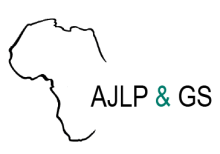Land Library
Welcome to the Land Portal Library. Explore our vast collection of open-access resources (over 74,000) including reports, journal articles, research papers, peer-reviewed publications, legal documents, videos and much more.
/ library resources
Showing items 1 through 9 of 206.We analyze rural households’ purchases of food (cereals and non-cereals) in Sub-Saharan Africa using nationally representative data with 65,000 observations covering 7 countries over a decade.
Context and background The mastery and control of rural areas remain a challenge for both landowners and the Burkinabe State.
Background and Context :Land is a key element for the practice of economic activities such as agriculture. In rural areas, its equitable access is an essential condition for sustainable development and the improvement of the living conditions of populations.
Worldwide, cell phones are used by 5.4 billion people. They are becoming increasingly prevalent in the rural areas of low- and middle-income countries (LMICs), providing smallholder farmers with access to agricultural markets.
Women are more food insecure than men globally and in every region. This paper investigates the global gender gap in food insecurity and its evolution following the COVID-19 pandemic.
Current food systems fail to address the triple burden of malnutrition — undernutrition, micronutrient deficiencies, and overnutrition (Popkin, 2019; Béné, 2019; Fanzo, 2020).
Tea is a very important cash crop in Vietnam as it provides crucial income and employment for farmers in poor rural areas. Unfortunately, the dominance of long-term, conventional tea cultivation has caused severe soil health degradation and environmental pollution.
Malawi has suffered from weak economic growth since its independence in 1964. Over 50 percentof the population live below the poverty line, unable to produce enough or to otherwise obtain suffi cient income to meet all of their basic needs. Poverty is concentrated in rural areas.
Rural Nigeria, with its diverse cultural and socio economic landscapes, presents unique challenges when it comes to digital inclusion.


